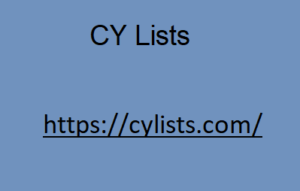|
|
Increased customer retention According to Act-On, 99% of B2B top performing companies utilize CRM for customer retention. Part of improving their experience, responding to their needs, and building your relationship with your customers is understanding their preferences and resolving their issues as fast as possible. Since you have a plethora of features to choose from in a CRM software plus your strategy, you get to attend to your customers’ needs in a way that is unparalleled. Customer relationship management also includes reaching out to customers and ensuring that they repeat purchases through recommendations, or reconnecting to older customers who may have been neglected.
According to SuperOffice, keeping an existing customer is about 6 to 7 times cheaper than acquiring new ones, so that is also something to keep in mind. Heightened productivity Since CRM software have integrations, automations, and other features, then it takes CY Lists away some load off of marketing and sales teams. According to destinationCRM, 91% of businesses with more than 10 employees in the US have a CRM system in place as it already automates repetitive tasks and other manual processes. CRM software integrations, such as RingCentral with Salesforce, can also promote team productivity and call efficiency.

Imagine not having to manually encode customer emails, send follow ups one by one, and check individually if the customer is ready to purchase! Increased ROI Last but not the least, proper CRM implementation can eventually yield your company an ROI exceeding 245%, although the timeline is around four months to a year according to Martech Zone. But still, that’s a massive increase that is well worth the effort, especially since the increased and sales team, and better customer relations. Types of CRM platforms There are three kinds of CRM platforms: Open-source CRM, on-premise CRM, and cloud-based CRM. Open-source CRM Open-source CRM simply means its source code is publicly available and can be “distributed, modified, and redistributed by users according to their needs.” One major advantage of choosing an open-source CRM is the price.
|
|